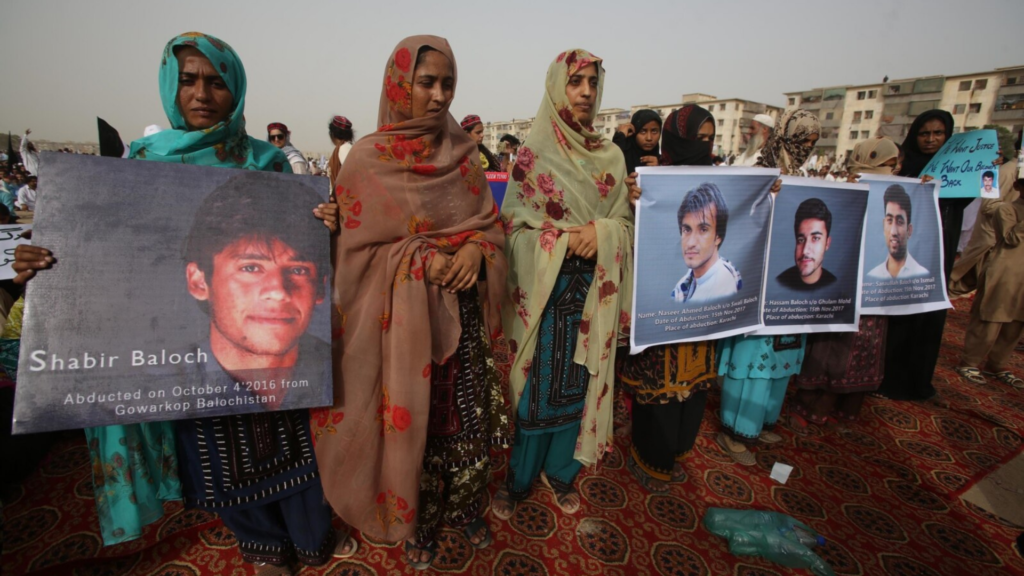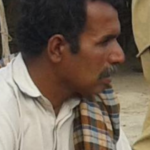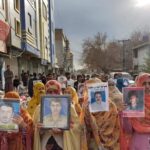In the first 10 days of February, Pakistani security forces and its affiliated militias abducted at least 34 civilians. Three of them were later released, one was killed and the whereabouts and fates of 30 civilians remain unknown. Students and social activists remain the primary target of enforced disappearance.
Ten persons were disappeared from district Panjgur, nine from Kech, five from Noshki and three each from Quetta and Sibi whereas one each from Harnai, Khuzdar, Dera Murad Jamali, and Dera Bugti.
Thirty-one persons were abducted by the Frontier Corps, one each by the Counter-Terrorism Department (CTD), Rangers and personnel of intelligence agencies in plain clothes.
Nine among the 34 persons were detained on check posts and then disappeared by the forces, while 29 persons were disappeared during raids by the security forces.
On 01 February, Mohammad Ghous, a resident of Harnai, district Harnai, was detained by the CTD of police when he was on his way to Macch, district Bolan. The CTD’s spokesperson later claimed that it was an intelligence-based operation and Mohammad Ghous alias Ghousia was arrested with explosives. The CTD also claimed that he is a militant affiliated with the Baloch Liberation Army. His whereabouts remain unknown till the filing of this report.
On the same day, FC personnel abducted brothers Nadim and Shamim Maqbool during two separate raids in Bahotchat, Dasht, district Kech.
On 03 February, Hayat Zangi, Anwar Gorgej and Hashim Domki were abducted and disappeared by the security forces from Sibi, Balochistan. The body of Hashim Domki was later found dumped in Macch, district Bolan, while the whereabouts of the other two remain unknown.
On 05 February, the forces abducted Mohammad Khan Nabi Bakhsh Bugti from his house in Dera Murad Jamali, Asim and Wahid from kili Jamaldini, district Noshki. Personnel of Sindh Rangers abducted Meraj Asa, a resident of Kohbun, Panjgur in Balochistan, from Rais Goth, Karachi, the capital city of Sindh province.
On 06 February, FC personnel raided the house of Nisar Ahmed Sarparrah in Mengal Street, Quetta, and abducted his son, Harun Walid, in front of the entire family.
On the same day, personnel of FC raided the house of Mohammad Hashim in Sui, Dera Bugti, and whisked him away.
On 07 February, the forces abducted 12 civilians from different areas of Balochistan. FC personnel along with the armed men of a death squad, raided the house of Malik Miran, a businessman and a prominent social activist in Panjgur, and whisked him away. According to his brother, the soldiers raided the house, looted valuables, a vehicle and tv sets, tied Miran’s hands on back and whisked him away.
Separately, during raids on other areas of Panjgur, the forces abducted six others, Balach, Aqil, Shabbir, Akram, Ahmad and Yahya Rais.
The FC abducted and disappeared Nazir Rahmat aka Aziz Baloch in Apsar, Turbat, district Kech, and Farhad Sarparah and Saqib Zaib Sarparah during a raid on their house in Faizabad, Quetta. Similarly, the forces abducted and disappeared Farid Mohammad Aslam and Sami Abdul Ghaffar during a raid on their house in Noshki.
On 08 February, Hafeez Baloch, a student of M. Phil in Physics from Quiad-e-Azam University Islamabad, was forcibly disappeared by the security forces from his hometown of Khuzdar. While Razaq, a teacher, was forcibly disappeared from Gokdan, Turbat district Kech, and Naim and Noroz from Panjgur.
On 09 February, the forces raided the house of Sadiq Aziz Sarparah in Noshki and disappeared him.
Due to the media blackout many cases went undocumented and in some instances families of the forcibly disappeared are threatened to remain silent or their loved ones will suffer the consequences in the dungeons of the security forces.


